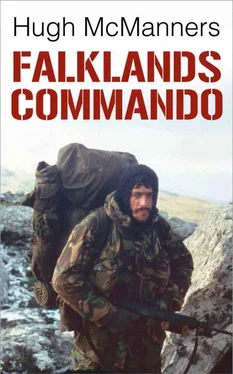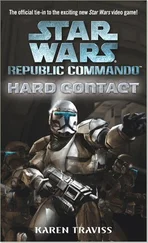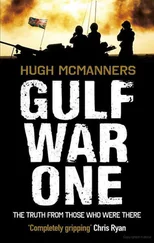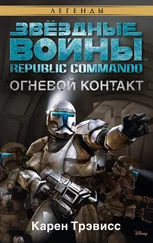Hugh McManners - Falklands Commando
Здесь есть возможность читать онлайн «Hugh McManners - Falklands Commando» весь текст электронной книги совершенно бесплатно (целиком полную версию без сокращений). В некоторых случаях можно слушать аудио, скачать через торрент в формате fb2 и присутствует краткое содержание. Город: London, Год выпуска: 2014, ISBN: 2014, Издательство: Nightstrike Publishing, Жанр: nonf_military, Биографии и Мемуары, на английском языке. Описание произведения, (предисловие) а так же отзывы посетителей доступны на портале библиотеки ЛибКат.
- Название:Falklands Commando
- Автор:
- Издательство:Nightstrike Publishing
- Жанр:
- Год:2014
- Город:London
- ISBN:978-0-992-81540-0
- Рейтинг книги:4 / 5. Голосов: 1
-
Избранное:Добавить в избранное
- Отзывы:
-
Ваша оценка:
- 80
- 1
- 2
- 3
- 4
- 5
Falklands Commando: краткое содержание, описание и аннотация
Предлагаем к чтению аннотацию, описание, краткое содержание или предисловие (зависит от того, что написал сам автор книги «Falklands Commando»). Если вы не нашли необходимую информацию о книге — напишите в комментариях, мы постараемся отыскать её.
Falklands Commando — читать онлайн бесплатно полную книгу (весь текст) целиком
Ниже представлен текст книги, разбитый по страницам. Система сохранения места последней прочитанной страницы, позволяет с удобством читать онлайн бесплатно книгу «Falklands Commando», без необходимости каждый раз заново искать на чём Вы остановились. Поставьте закладку, и сможете в любой момент перейти на страницу, на которой закончили чтение.
Интервал:
Закладка:
Sir Lancelot had been got back into action with a minimum of delay; the splintered fittings and wall surfaces simply ripped out and piled on the upper deck. The main passageway through the ship, the ‘Burma Road’, and the entire main galley with its fixed tables and plastic chairs, were a couple of inches deep in dirty-looking sea water. It was bitterly cold and everyone wore duvet waistcoats and pile jackets, the lucky ones with Wellington boots.
The hole caused by the passage of the bomb was utilised to provide an extra route through the ship. Ladders and rope handrails had been lashed up through the hole to the next deck, the biggest holes covered by cat-walks of wooden planks.
I dumped my bergen gear in a cabin to one side of the bomb hole, which looked as though it had escaped damage. Its wall had Formica panelling that was cracked and damaged. When it got dark I understood why, as strong, werewolf-inducing moonlight shone through a colander of ten pence piece-sized holes, the result of strafing by Skyhawk 20-mm cannon. The wind also whistled in – an overly healthily ventilated cabin.
I made my way up to the stern of the ship and the wardroom, to find several friendly faces grinning at me from behind beards and long hair. By this stage we were all beginning to look like bandits, and it just didn’t seem sensible to scrape faces with razors. The Chinese barber was far too preoccupied with the war to do haircuts. Some people had come directly from other jobs for which a non-military appearance was an advantage, more like Knebworth survivors than Sandhurst graduates.
Another old friend, Captain Roger Dickie, was waiting in the wardroom. We’d been in the same platoon at Sandhurst ten years earlier, and our paths hadn’t crossed since. Roger was a Royal Artillery air defence expert, in charge of a contingent operating shoulder-held Blowpipe missiles. When the ship was bombed, he’d lost everything except the clothes he’d been wearing. He wore the distinctive white plimsolls and blue shirt from a shipwreck survivors pack with a huge grin that was undiminished by all this chaos.
Throughout every air raid, Roger stood on deck to organise his missile operators and machine-gunners. He was determined to take a dramatic photo of a jet screaming in at 20 feet above the waves – a potentially prize-winning picture that had now presented itself to him several times. But every time, he confessed to having completely forgotten about his camera.
The Chinese crew, caught up in a war that had very little relevance to them, were confused and far from happy. They shuffled morosely around their wrecked ship like oriental Michelin Men, wearing large orange lifejackets, steel helmets, anti-flash gear and all their clothes.
The Royal Fleet Auxiliary officers were not happy either. Both they and the Chinese crew were contracted in, and well paid for the dubious privilege of being in ‘Bomb Alley’. Nevertheless, they complained loudly about having to stay so long in such a dangerous place, and questioned why the ground forces were delaying marching on Stanley. They had no idea of the vast amount of equipment and supplies, in particular artillery ammunition, which would have to be flown into position before a final assault could begin. To be fair to them, the Royal Navy did not always understand this either, so the rather bitter conversations I heard in that wardroom, although disappointing, were also predictable. Furthermore, being on board ship – even one so badly damaged – they could not possibly imagine the atrocious conditions in which the troops were living ashore. If they had, they would have realised that no one was delaying for one second longer than necessary.
The RFA officers were especially scathing about the way Fearless positioned all the ships during the raids, feeling that they were being put in unduly vulnerable positions. In fact it was quite clear that the RN escorts, the air defence ‘goalies’, were in the most vulnerable positions of all, and as a result had suffered the most. Of course, if you have only a few machineguns and Blowpipe missiles with which to defend yourself you’d feel exposed wherever you might be placed. Had all the equipment on board the RFAs not been needed, they would certainly have been despatched to the relative safety of the Hermes group at sea.
However, all these bitter discussions suddenly became shockingly relevant, because that night, 8 June, the two RFAs Sir Galahad and Sir Tristram at Bluff Cove were bombed with tragic loss of life.
After the lull in air attacks over the previous week, the 8 June was a major consolidation of whatever strength the Argentinean Air Force could still muster. At the end of that long day they’d lost twelve aircraft, but scored one of their greatest successes.
There’d been a steady series of air raids all evening, but we carried on planning and working regardless. There was vague news of an RFA being hit in the south, followed by a hint that our operation might be postponed. Food and drink on board Sir Lancelot , courtesy of the Chinese cooks and stewards, was excellent. After all our adventures, a relaxing evening would be very welcome – as opposed to the nightmare of another helicopter night insertion. Nothing was certain and I was caught on the dilemma of remaining teetotal in case we did go in after a good dinner, or having a few much-needed beers and quite a lot of wine. Tough decisions, trivia mixed with tragedy.
Steve Hoyland arrived with some more mail that had miraculously found its way to us, which I read, then re-addressed to myself and posted on to Intrepid. There were music cassettes from home, and some quite old letters sent before the hostilities had commenced, including a much-forwarded, final rates demand in red printing which seemed absolutely ludicrous, from another very distant world.
As we sat down to dinner, it became clear that the news from Bluff Cove was very bad and that all the helicopters were likely to be used rescuing the injured. I decided that our op had become too difficult, and would certainly be cancelled. The wine list beckoned. When it became clear the Welsh Guards had suffered the most casualties, I could only hope that my brother Peter was all right. (I hadn’t yet heard that he had been moved to the Scots Guards, and so was not involved in the disaster).
The food was superb: a choice between excellent Chinese dishes and steaks, fish, cheese and pudding, with very good duty-free wine. Needing to build up the calories, we waded through a full five-course dinner with coffee at the end. Under the circumstances this seemed completely bizarre, but we required no persuasion at all to make the most of it. We had clam chowder, escargots, steak, pudding and cheese with wine, plus a couple of beers afterwards. The operation was then formally cancelled, we had a good night’s sleep and the next day were able to have a leisurely and a comprehensive sort-out of our kit.
Looking back on that night, when the Argentine Air Force struck perhaps its bitterest blow, I’m amazed by how little we knew of what was going on at Bluff Cove, and how little it distracted us from what we were doing. We heard snippets of information from time to time; one report of how the Sea King pilots were performing miracles blowing the orange survival dinghies away from the burning ship, and conflicting reports of the numbers of casualties. I was beyond the stage of each fresh disaster making me sad, sickened, angry or worried. The five of us were living in each other’s pockets and keeping our minds firmly on what we personally had to do. There was no time to consider anything else. As the news of the tragedy at Bluff Cove filtered through, it was yet another sadness to absorb. But it wasn’t our responsibility, and there was nothing we could do.
Читать дальшеИнтервал:
Закладка:
Похожие книги на «Falklands Commando»
Представляем Вашему вниманию похожие книги на «Falklands Commando» списком для выбора. Мы отобрали схожую по названию и смыслу литературу в надежде предоставить читателям больше вариантов отыскать новые, интересные, ещё непрочитанные произведения.
Обсуждение, отзывы о книге «Falklands Commando» и просто собственные мнения читателей. Оставьте ваши комментарии, напишите, что Вы думаете о произведении, его смысле или главных героях. Укажите что конкретно понравилось, а что нет, и почему Вы так считаете.












